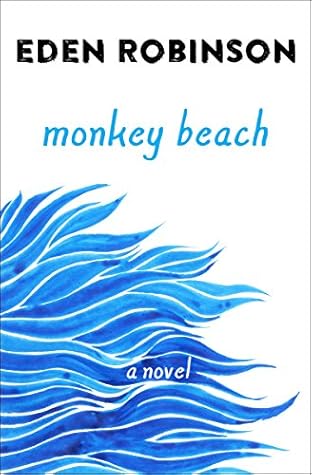More on this book
Community
Kindle Notes & Highlights
“He’s a guide, but not a reliable one. Never trust the spirit world too much. They think different from the living.”
She could really dance, and she made beautiful songs—that no one sings any more. And I was too young back then to put them in here.” She tapped her temple.
“All the people knew the old ways are gone. Anyone else is doing it in secret these days. But there’s good medicine and bad. Best not to deal with it at all if you don’t know what you’re doing. It’s like oxasuli. Tricky stuff.”
An elder tells a youth to forget the "old ways" too dangerous. Interesting because it usually presented as the opposite.
We hung the cedar in her house first and put oxasuli on the windowsills. When we put the cedar up in my room, Dad came in and raised an eyebrow when he saw what we were doing, but he didn’t say anything.
I loved Ma-ma-oo’s stories about the cheeky, shape–changing raven named Weegit. I try to remember a story she told me, but I am distracted.
I think it was grade seven when I learned that wind starts as a difference in temperature between the air and the ground.
“See these ones? Pipxs’m.” “That’s what you call blueberries in Haisla?” “No, no, just these blueberries. See, they have white stuff on them. Pipxs’m means ‘berries with mould on them.’”
We found the other kind, sya’k°nalh, “the real blueberry,” shiny bluish-black berries, prettier, but not as sweet as pipxs’m.
we found the third type, pear-shaped and plump and sweet. Their Haisla name is mimayus, which, loosely translated, means “pain in the ass,” because although they taste wonderful, they’re hard to find and to pick.
I wasn’t sure if there was a ceremony that went along with the hair burning, but just the cutting alone had made me feel better. Mom said she’d heard we were supposed to burn it.
It's curious how much tradition or rituak has been lost for modern conveniences. We don't really celebrate any of the Chinese holidays.
Contacting the dead, lesson two.
Names have power. This is the fundamental principle of magic everywhere.
Ga-bas’wa, the mountain in the middle,
“You are definitely an Alexis,” I said, naming her after my favourite “Dynasty” character.
ci’x°a. Wild crabapples
The pulse you feel at your wrists and neck is actually the shock wave emanating from the epicentre of your beating heart and vibrating through your arteries.
To say Xa’isla, touch your throat. Say the German “ach” or Scottish “loch.” When you say the first part, the “Xa,” say it from far back in your throat. The apostrophe between the syllables signals both an emphasis and a pause. Say “uh-uh,” the way you’d say it if you were telling a child not to touch a stove. Put that same pause between the first and last syllables of Xa’isla.
The name Haisla first appeared in print in 1848 as Hyshallain.
Contacting the dead, lesson three.
Kolu’n, sapling cottonwood,
we had looked at my picture books describing the heart. Even in the kids’ books, the technical words were confusing. We kept having to open up the dictionary, puzzling our way through the multisyllabic words.
Nice slice of immigrant life. Learning a new language is challenging and more so when it is jargon filled. Also, interesting the Haisla are native, indigenous.
when your body is falling apart, and you can’t do anything to stop it, there is a grim satisfaction that comes with knowing exactly what is going wrong.
I felt deeply comforted knowing that magical things were still living in the world.
Clams have black tongues because a long time ago the world was on fire and the clams tried to put it out by spitting.
T’sonoqua is not as famous as B’gwus. She covers herself in a cloak and pretends to be an old woman.


